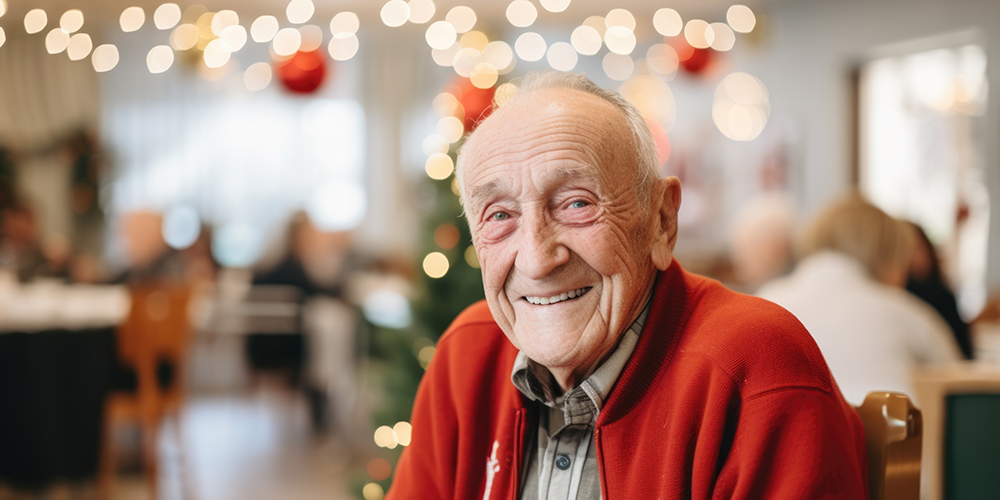
The holiday season is a time for joy, togetherness, and celebration, but for individuals living with dementia, it can be challenging and disorienting. Dementia affects the way a person perceives and processes information about their environment. Situations like a houseful of guests, a Christmas tree indoors, and even busy decor around the home can cause confusion for a person experiencing cognitive decline. However, with some thoughtful adaptations, it’s possible to create a more inclusive and enjoyable holiday season for both the person living with dementia and their loved ones.
Simplicity is key. Simplify holiday decorations and avoid stimulating visuals. Use subtle and calming colors in your decor and reduce clutter to create a peaceful environment. Bright, flashing lights and intricate decorations may be disorienting for someone with dementia.
Stick with familiar holiday traditions and routines that the person with dementia used to enjoy. Repetition can be comforting and help them feel more grounded. Singing carols, lighting the menorah, or baking holiday cookies can evoke positive memories.
Manage expectations. Set realistic expectations for holiday activities. Understand that a person with dementia may not be able to participate in the same way they used to. For example, if you typically hold a holiday party (even with just a few other families), be mindful that the increased noise level and unfamiliar faces can be overwhelming to someone with dementia. Adapt to their current abilities and be prepared for the possibility that they might not remember recent events or people.
Engage in sensory activities. For example, a sensory table with ornaments of different textures provides a tactile experience. Listening to classic holiday music or feeling the texture of wrapping paper can be calming and enjoyable.
Consider dietary restrictions and preferences when planning holiday meals. Avoid complex dishes and instead maintain routine with familiar foods. Finger foods can be easier to manage and less frustrating than utensils for people who have declining fine motor skills.
Use memory aids to help the person with dementia stay engaged. Create a holiday scrapbook using pictures of past celebrations that have captions to identify the people; make it specific to the person with dementia such as writing “Susie is Mary’s daughter” to assist in recognition and connection.
Designate a quiet and calming space for the person living with dementia to retreat to if the holiday festivities become overwhelming. Ensure the space is well-lit, comfortable, and equipped with familiar items like their favorite blanket, a cozy chair, and preferred music.
Encourage inclusive conversations by sharing stories and memories. Reminiscing about past holidays can help the person feel connected and engaged in the moment. Be patient and listen attentively when they share stories that you may have heard before.
Limit noise and chaotic environments. If you’re hosting a gathering, consider switching to smaller more intimate events that won’t overwhelm a person who has dementia.
Finally, be flexible and open to change. It’s important to be able to adapt your plans on the spot based on the person’s current needs and preferences. What worked last year might not be suitable this year, so be prepared to modify activities or take breaks as necessary.
Adapting holiday activities for a person with dementia requires a thoughtful, compassionate, and flexible approach. The goal is to create an environment that fosters comfort, safety, and inclusion. By simplifying decorations, maintaining familiar traditions, engaging in sensory activities, and understanding their needs, you can help individuals with dementia and their families find joy and connection during the holiday season. Remember that the essence of the holidays is not the grandeur of the festivities, but the togetherness shared with loved ones.
Sources: Starr Hospice Dementia Program, Teepa Snow
You might also enjoy reading:
Boredom and Dementia Patients
What is Sundowning?
Vision Decline and Dementia